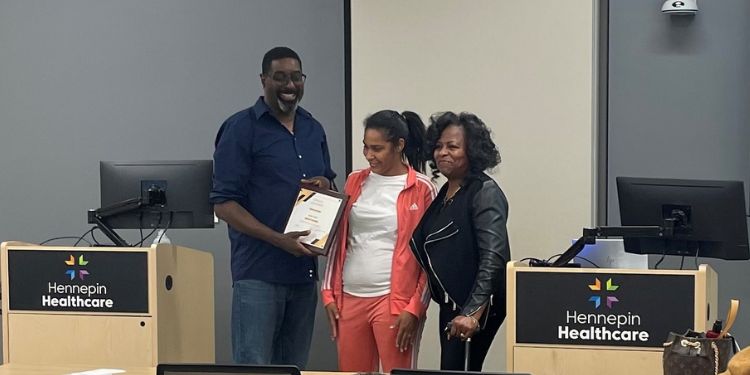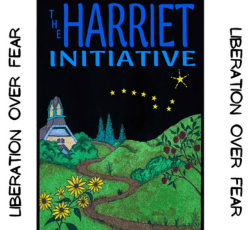The Next Step Harriet Initiative: Empowering through trauma recovery

“I have so much anxiety allowing my son to go outside,” said a mother whose son was a survivor of gun violence. “I wait with him for the bus to pick him up for school and feel so helpless when he leaves my sight.”
Another mom tearfully shares, “I moved to get away from the neighborhood where my daughter was shot, only to have my other daughter shot in another neighborhood. What can we do? Where can we go? It’s not safe anywhere.”
Surrounded by a safe, caring community of others with shared experiences, these moms began processing the trauma that gun violence brought to their families at a recent Next Step Harriet Initiative meeting held in the CSC’s Stillman Conference Room.

The Harriet Initiative is one of the community outreach programs offered through Next Step. Meetings are held on Tuesdays from 5:30 p.m. to 8 p.m. in the Stillman Community Room and are led by wellness professionals. Participants are offered a free catered meal, workbook, and childcare if needed. The program welcomes anyone who has experienced violence aims to improve the holistic well-being of the mind, body, and spirit, and offers healthy strategies to overcome challenges.
The Harriet Initiative focuses on a trauma recovery mindset that includes empowering participants through trauma education and developing coping skills to assist participants with navigating triggers. This mindset involves acknowledging and understanding the impact of trauma, both acute (sudden and short-term) and generational (trauma that is passed down through generations).
Cedric Weatherspoon, MA, LMFT, President of Empower Therapeutic Support Services, Inc., opens the sessions with information about how generational trauma is passed down and how poverty can contribute to trauma.
“Breaking these cycles of generational trauma is an essential part of the healing process,” he said. “Trauma from gun violence can be passed down through generations, contributing to a cycle of violence and trauma within families and communities. Therefore, focusing on past traumatic events that have impacted the person is essential, so they have a deeper understanding of how they have coped with trauma. We hope that understanding past trauma will help open pathways to new coping skills.”
“A violation has occurred – but there’s no sense trying to make sense of nonsense.”
Some actions or events defy logic or rational explanation, and it may be more practical to address the violation or wrongdoing rather than expending energy on understanding the underlying motivations or reasons behind it. This statement highlights the importance of addressing the issue rather than getting bogged down in comprehending the incomprehensible.
“It’s so hard not to be angry.”
Aldo Anger Management programming helps participants identify and discuss feelings of anger and hopelessness. Anger and hopelessness can create significant barriers to reconciliation and conflict resolution. The Harriet Initiative Trauma Recovery Group may help participants recognize how their anger and negative emotions hinder their ability to communicate, empathize, and reconcile with others.
Deseria Galloway, MSW, LGSW, and CEO of Well Spring Second Chance Center, is one of the inspiring program presenters. She helps participants dissect their emotions and offers skills and strategies to process their feelings while gently redirecting them when necessary.
“You cannot suppress – you must address what you’re feeling,” she explained to the group. “Has your anger or fear led you to a place you don’t want to go? I’ve heard you lose 60 seconds of happiness every minute you’re angry. Don’t let anger hold you captive. You can’t live your life in a bubble.”
Even if you haven’t been directly affected by trauma, consider attending the next Harriet Initiative – you’ll be deeply inspired and better understand those who are.

